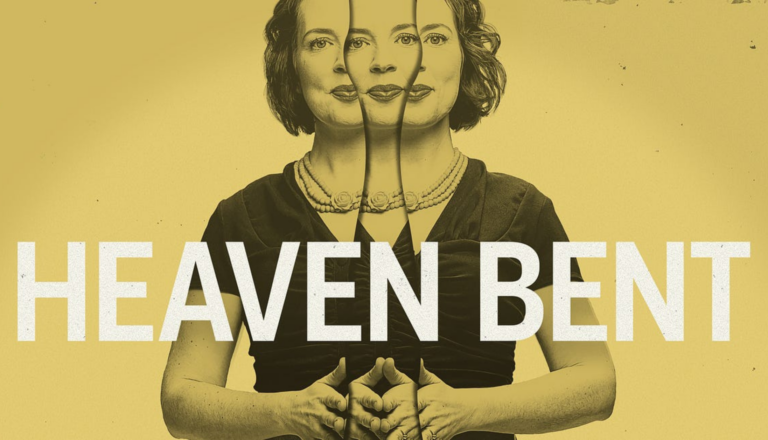Here’s a question, podcasters: What’s your show like?
When making a podcast it’s a question that sometimes gets overlooked in favour of flashier, zazzier questions like What’s my podcast about? or Who will be my host?
But this underrated question can be the key to setting your podcast apart.
Defining and communicating what your show is “like,” is all about the most magical element in the alchemy of great podcasting: your show’s Values.
What are Show Values?
If you look at the Cambridge Dictionary here’s what it’ll tell you about what “values” are in general:
Values (plural noun /ˈvæl·juz/): The principles that help you to decide what is right and wrong, and how to act in various situations
When it comes to podcasts, values play the same role.
Your show values help you make decisions, and yes, answer the big questions around who will host and what subject matter you’re going to talk about. But more than that, show values are the guiding characteristics that allow you to define and communicate what your show cares about: its perspective, and its personality.
Values are what turn a show concept “on paper” into a living breathing thing.
And most importantly, values are what help you develop and maintain an emotional relationship with your audience. This is what keeps listeners coming back to you because of how they feel after they’ve listened.
Why You Need Show Values
Let’s run with that idea of what a show is like “on paper,” and how values can impact how a show comes to life.
I’ll use a TV example because the conventions of reality-show production are familiar to so many of us now, they are easy to spot.
Here’s how the show description might read: A group of talented, amateur chefs cook for some of the biggest names in the culinary industry. Each week they compete in tougher and tougher elimination challenges until only one of them is left.
One set of producers might take that show description and cast Gordon Ramsay as the star, interrogating his way through a stack of stressed-out home cooks vying for the title of MasterChef. The show’s values might be something about drama, tension, or cut-throat competition.
Another producer might instead feature celebrity chef Paul Hollywood as its judge, giving congratulatory handshakes to the contestants in the Great British Bake Off each week. This show’s values might have positivity at its center.
Same show on paper, but the look and more importantly the feel of the two shows are radically different, and telegraphed by a million elements within the program. One is set in an expansive pressure-cooker test kitchen, the other in a wedding tent in the English Countryside. The edits, the theme music, even the way the losing competitors say goodbye to the other contestants—all these decisions on the part of the producers leave you with a very different experience as a viewer and a very different feeling about the show you’ve just watched.
Such is the great power of values, and why you need to harness them for your podcast.
You Can’t Make a Podcast for Everyone
Here is maybe the most controversial thing I can say about show values.
While powerful, and wonderful, and magical, your show values will not win everybody over. But that’s okay.
You don’t want everyone to like your podcast. You want your core audience to LOVE your podcast.
You want a core audience to subscribe, spend time, leave reviews, and go to your live shows. You want them to swoon when your series artwork flashes up on the screen at the Podcast Movement 2022 Festival.
Whatever the content or subject matter of your show, you want to inspire the sometimes polarizing, deep-rooted emotional relationship and loyalty that podcasts deliver best when listeners feel you are on their wavelength. You want them to think “Hey, this isn’t just a show about something I’m interested in, this is a show that really gets me. They’re speaking my language. They care about what I care about.”
How to use Show Values
There is the simple, two-step formula for getting people* to love your show:
Step 1: Know your show’s values
Step 2: Communicate those values with every single choice you make
* your target audience
Step One: Know Thyself (And Your Show)
Defining your show’s values is a super useful exercise, especially if you make a show with other people. After all, if you don’t know your show’s personality it’ll be tough for the audience to get into it.
If you have a mission statement or even a logline, then you’ve already started the process.
You know you’re making a show about XYZ.
That’s a huge expression of your show values right there. You likely came to the topic because that’s what you, or your brand partner, or your organization cares about.
So think about the “why” of that choice, and what motivated you to make it.
There’s your first show value.
So for example, let’s say your show is about environmentally conscious investing. That’s a topic choice, but what’s the show’s perspective within the subject area:
Activist? Newsy? Community-Building?
Pick one of those descriptive adjectives, and you’ve started defining your values.
Make a list
Ultimately, what you want is a list of three or four key characteristics that are going to help you communicate to the world everything they need to know about what you’re like.
After that, think about what action list you can put in place to communicate that value. It will become a checklist for you to measure success in something that might otherwise feel squishy and subjective.
For example, if you were the Environmental Investing show described above, with an activism value, you might include a takeaway in each show for the eco-conscious investor on how to “divest” their portfolio.
If you’re a newsy Environmental Investing show, your action plan might include a headline package that gives insights into that week’s green economy IPOs.
ProTips!
- When defining your show values and your action plan, don’t pick too many or you’ll be into the mushy middle territory. It’s hard to be smart, Silly, surprising, analytical, advocating, and deep all the time.
- Remember that the words you pick to describe your values will need to work really hard to help you make choices about what’s in your podcast (and what’s not). If you want humour as a value, make sure you pin down if you mean zany, snarky, or self-deprecating, for example.
Once you have your list, make every production decision you possibly can with those show values in mind in order to communicate to the world what your show is really like.
Step Two: Putting Words into Action
There’s an expression in theatre that “everything speaks,” and it’s the same with podcasts. Each decision that goes into making and packaging your show will say something to your audience about your values.
- Who you pick to host
- Who you invite as guests
- Formats (I.e. long-form interviews or magazine-style)
- How often do you release an episode
- Your series artwork
- Theme music. Theme music! Theme music!!
- The stories you tell
A lot of this we know intuitively because we can see or feel the effects — the sound of violins sneaking up under an interview makes us weepy, and something with a percussive beat makes us perk up.
But that’s not to say your choices are always easy.
Humour is a powerful show value, but also one of the most subjective. An edgy joke that might seem humorous to some, might seem mean-spirited to someone else.
I’d put music in that same powerful-but-subjective category. Think about the opening notes of your favourite podcast theme song, and the emotional anticipation hearing that riff makes you feel. The connection runs both ways with music, which is all tangled up in the era we grew up in, our memories of certain events, whether we like a genre of music or don’t. The musical footprint of your podcast says volumes about your show values, even without words.
What Your Choices Say About Your Show
Every production choice you make says something to your audience. Keeping in mind your show’s three or four core values, you can make decisions intentionally and consistently. Along with topic and content choices, think about your tone, pace, and perspective, and the choices you can make to communicate them to your audience.
How long you spend on a story might say your show is analytical and deep, or that it’s topical and hard-hitting. Your language and tone could say it’s a humorous or serious podcast. Your episode title choices and theme music could say your show is playful or earnest.
All these choices, when combined, will communicate your values, and create a different emotional reaction in your audience.
They are what helps your listeners learn what your show is “like,” so they can decide if they like your show.
Values: The hardest working tool in your toolbox
It might take time to develop a set of strong, well-articulated values, but they will save you time in the long run. Once you have them honed, they are the Swiss-army knife of podcast production and packaging.
They become your sorting hat in story meetings, helping you decide on story ideas, guest options, and topic treatments.
They can be a handbook for a new producer or sound designer to learn how you make choices.
They can be a yardstick for program reviews to measure if you’ve accomplished a common goal.
If you ever want to know whether you’re really staying true to your values or not, just ask someone new to listen to your show and come up with a list of adjectives to describe it. If you are consistently surprised by the answers then you may have a mismatch between what you think you’re putting out in the world and how people are actually reading you. Even still, that’s information that can help you course correct.
That’s a lot of power in one simple question.
So podcasters, when’s the last time you asked “What’s my show like?”
Sign up for the Pacific Content Newsletter: audio strategy, analysis, and insight in your inbox. Once a week.
Related Posts
How I Learned to Stop Worrying and Love (or at least not totally loathe) My Trailer
5 tips from a designer
- By Wanyee Li
- on




